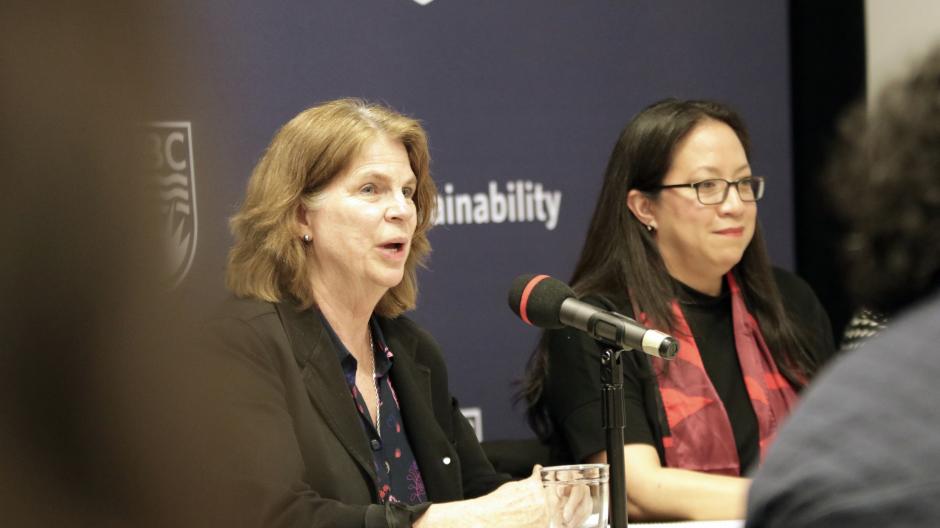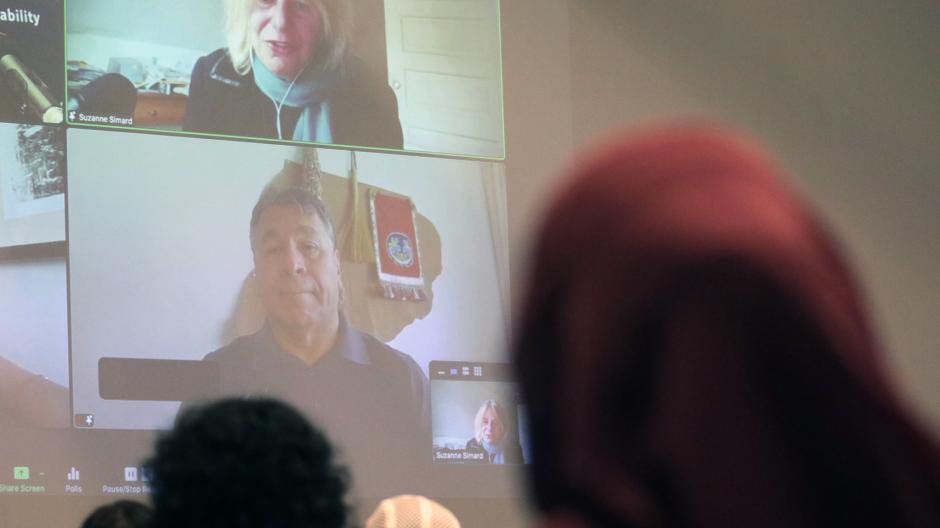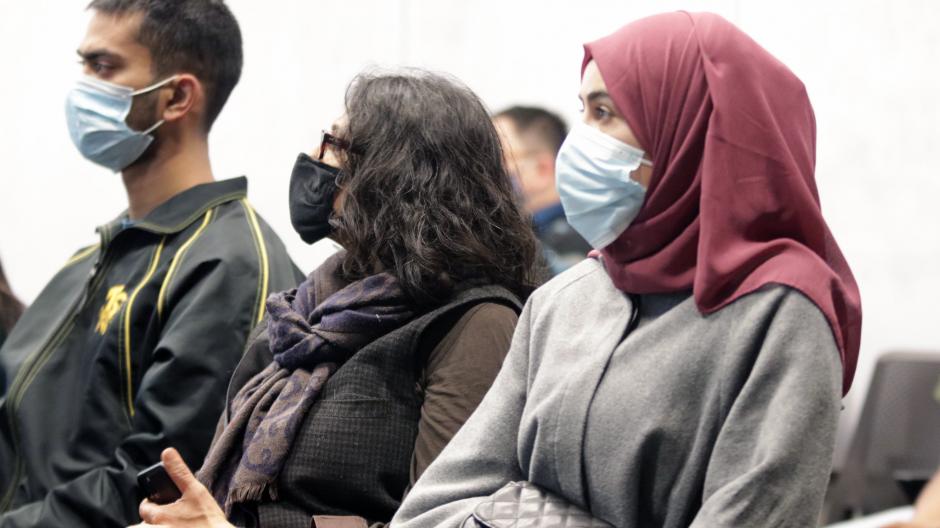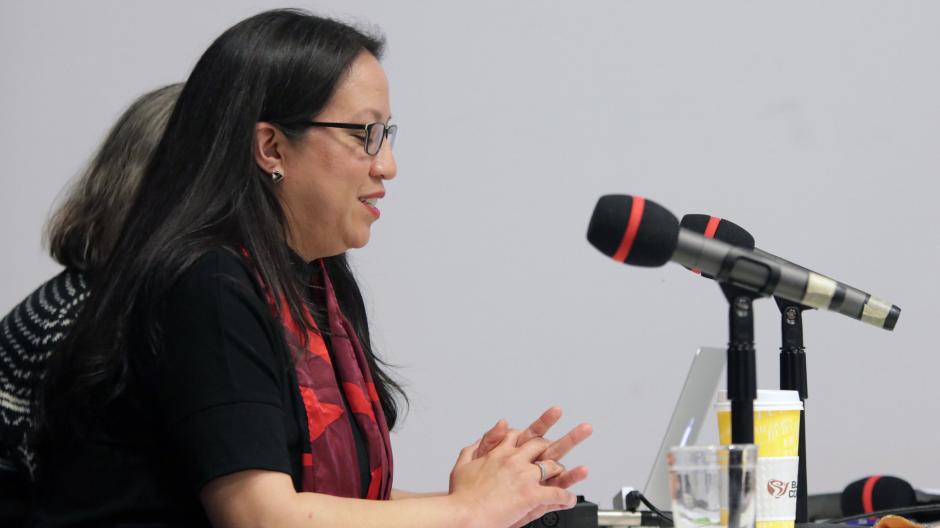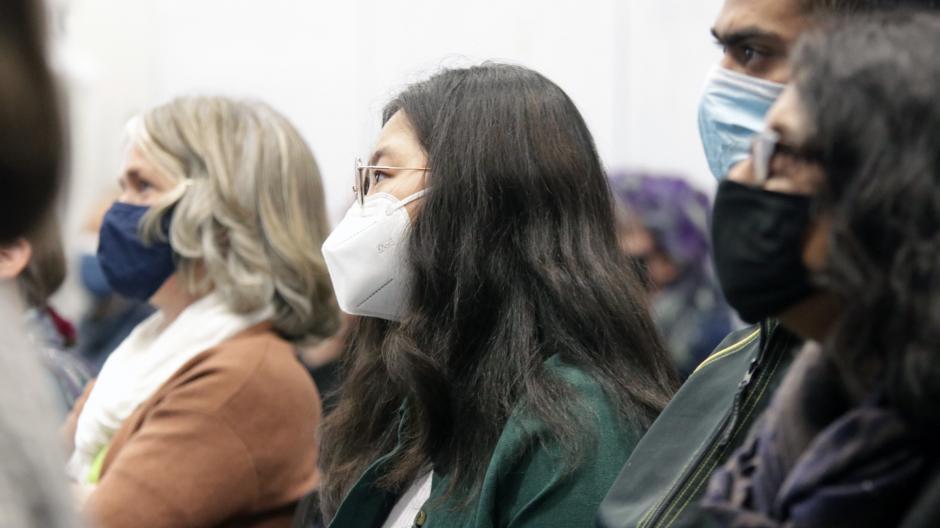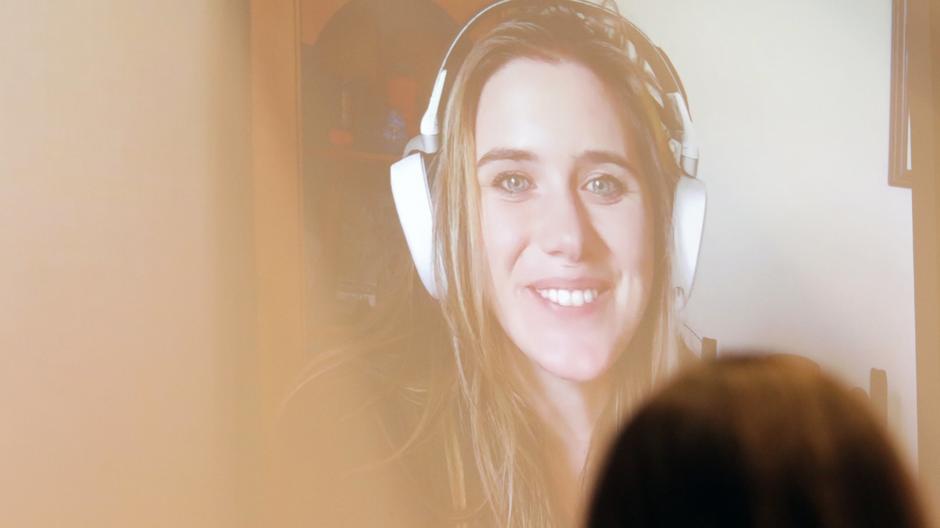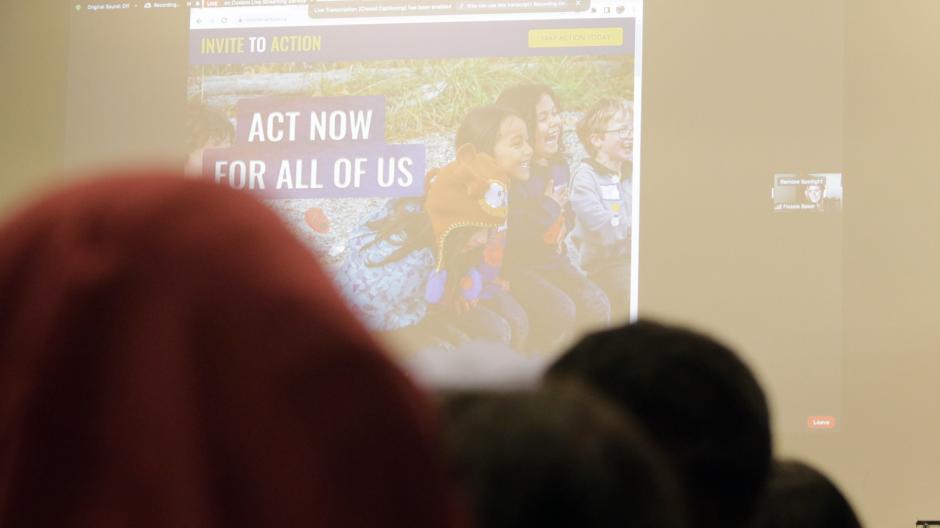An Earth Week special on old growth forests and climate change featuring Mother Trees, climate litigation, and Indigenous knowledge. Part of the Climate Justice Series.
On April 21, 2022, the Sustainability Hub – in partnership with Sierra Club B.C and CPAWS-BC – presented an Earth Week special on old growth forests and climate change featuring Mother Trees, climate litigation, and Indigenous knowledge, moderated by Dr. Danielle Ignace, Assistant Professor, UBC Forest and Conservation Sciences.
Featuring:
- Suzanne Simard, Professor of Forest Ecology, on 'Finding the Mother Tree'
- Hannah Askew, Executive Director of Sierra Club BC, on ‘Climate Litigation as a Tool for Change.’
- J Kevin Barlow (magtawe'g mui'n gagamig gwilmn n'pisun), Executive Director of CPAWS-BC (Canadian Parks and Wilderness Society, BC Chapter), on ‘Indigenous Knowledge is What We Need'
This free public talk was both in-person and online, and featured a live audience Q&A session and a special call to action from Flossie Baker, lead organizer from the Sierra Club B.C.
The best attended event in our Climate Justice series yet, over 700 people joined the discussion – including 655 online and 60 in the room. We also received over 50 questions from a well engaged audience. Thank you for your time, energy and enthusiasm.
watch it again
Key take-aways
1.Mother trees need protection – by incorporating western science and Indigenous knowledge
Dr. Suzanne Simard called for the protection and restoration of Mother Trees, large old trees in old growth forests, and forests around the world. Her research shows that trees are connected below-ground via a vast fungal network, and use mycorrhizal networks to send and receive chemical messages to one another. Mother Trees are particularly important to protect since they support biodiversity and act as giant carbon sinks. Indigenous knowledge is also key to forest protection. For example, some Indigenous people living in the Pacific Northwest use fishing practices that allow for salmon to be harvested in a way that doesn’t harm their populations and supports the forest ecosystem.
With the help of a project team of researchers and students as well as many collaborators in the forest industry and government, Dr. Simard created the Mother Tree Project that incorporates western science and Indigenous knowledge and knowledge systems, investigates forest renewal practices that protect biodiversity and increase carbon storage, and researches ways for forests to adapt to climate change.
2.Climate litigation is a powerful tool to combat environmental degradation
Hannah Askew reviewed a recent Sierra Club B.C lawsuit against the BC Government for failure to comply with their own climate accountability legislation. Hannah noted that filing climate litigation is a powerful tool that citizens can support to combat further environmental degradation. By doing so, citizens can counteract pressure from fossil fuel lobbyists, and hold governments accountable.
Hannah also shared thoughts on the Indigenous knowledge she has observed through studying Anishinaabe Indigenous law, and highlighted the importance of cultivating values that do not rely on laws to enforce sustainable behaviour. For example, kQwa'st'not~Charlene George has created a physical and digital mural called Seeing Through Watchers’ Eyes ~ Between the Worlds that teaches various lessons on Indigenous values as a way to address climate change issue by encouraging a mindset that respects nature.
3.Climate optimism is still possible, despite the chaos
Kevin Barlow observed we are entering a period of climate chaos, and gave the examples of recent forest fires, heat domes and mudslides in BC. Kevin also shared an Indigenous prophecy on rebuilding sustainable societies, and his optimism on making the changes needed to live within nature’s means. "We must all join hands and raise our voices to speak for that which cannot speak - nature. Saying things are too late, that we cannot go back and undo all the impacts we have made serves no value."
4.Taking action can come in many forms
Flossie Baker demonstrated an online action portal that invites people to bring their artistic and creative talents to climate action, and asked attendees to support a new campaign designed to put pressure on the B.C. government to pass new species at risk legislation.







